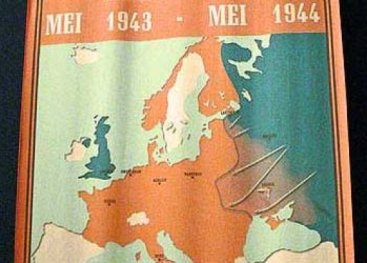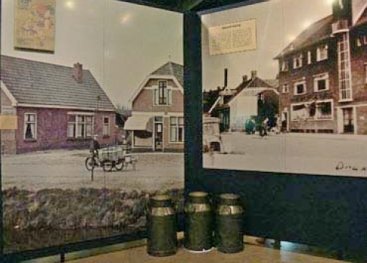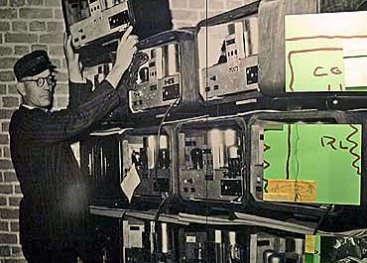
Armed resistance
National Organisation of Armed Squads
In August 1943, the National Organisation for Aid to Those in Hiding (LO) began setting up a network of Landelijke Knokploegen [LKP, National Organisation of Armed Squads]. The armed squads set registry offices on fire and carried out armed raids in which they seize ration coupons and blank identity cards.
Registry Office set on fire
A forged identity card offered little protection if the information did not coincide with that in the registry office. On the evening of March 27th, 1943, a resistance group set fire to the Amsterdam Registry Office (opposite the present Museum of Dutch Resistance). The action caused quite a stir.


Pram used for illegal transports.
The compartment in the base was intended for diapers. A woman with a pram was not particularly suspect and fit in with the National Socialist ideal of the woman as an innocent mother. Couriers cleverly played on those sentiments.
Killing traitors
With the help of Dutch infiltrators, the Germans tried to round up the resistance organisations. Sometimes arrested resistance fighters were forced to act as infiltrators. Exposed traitors were shot by the resistance. Despite moral objections, most resistance fighters regarded the liquidation of traitors as a bitter necessity.
The illegal paper Het Parool stated on October 15th 1943, that ‘the bitter battle for life and death that we are fighting (…) is at times troubling the conscience of many. How far can we, should we go? The illegal publication concluded that ‘killing traitors is ethically permissible.’ ‘Total war requires total resistance.’

Hannie Schaft
Red haired student Hannie Schaft joined a communist resistance group in Haarlem in 1943. The group's mission was to liquidate traitors. It was a job that had to be done, reasoned Hannie and Truus Oversteegen, her comrade in arms. 'We had no prisons,' recalls Truus. 'There was no other solution.'
Couple in love
The photo shows Truus and Hannie in disguise, with Truus dressed up as a man so they could pose as a couple in love.
'You stand there, pretending to be necking, with the pistol ready to fire. One of those men comes out the door and you go after him, very nervously. Then you say something encouraging to each other like "there he goes, the bastard” to buck each other up at that difficult moment of decision.'
The German police started looking for a 'red haired girl', so Hannie dyed her hair black. To no avail. In 1945 - shortly before the liberation - she was arrested and taken to the dunes to be executed.


